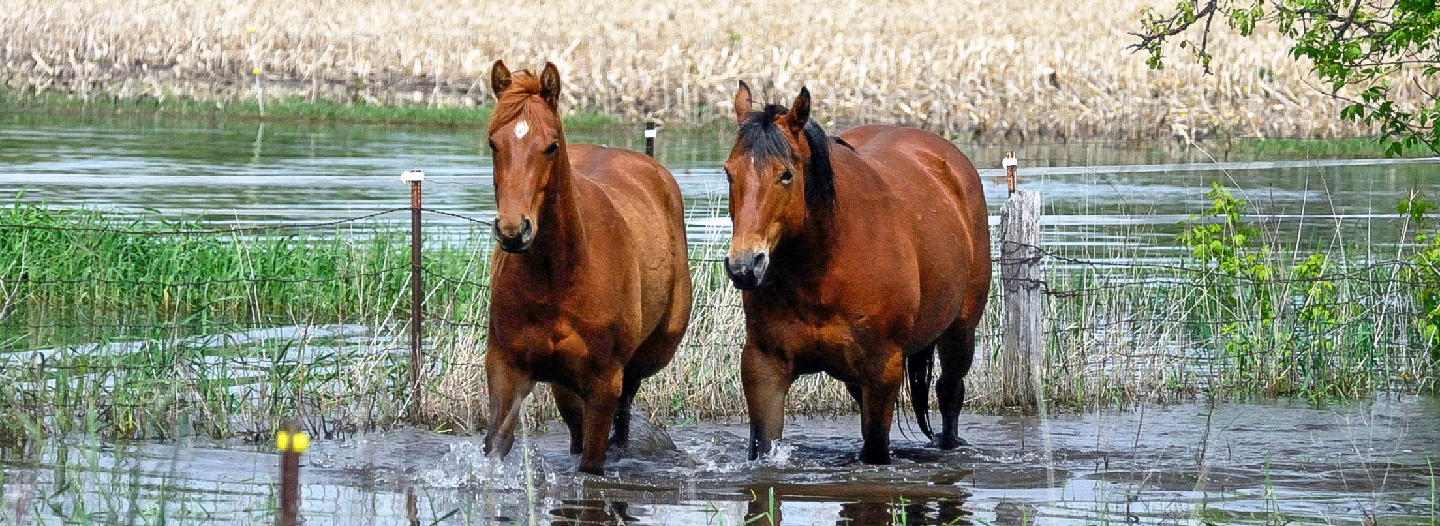The South Carolina Horse Council
is committed to the welfare of the SC equine population.

pc: unknown
South Carolina animal owners can stay ahead of the storms with a website devoted to them.
“Natural disasters like hurricanes don’t always give us much time to act. That’s why it is vital to plan ahead,” said Boyd Parr, South Carolina state veterinarian and director of Clemson University Livestock-Poultry Health (LPH). “Being prepared can save you and your animals a great deal of stress. Develop a plan, stick with your plan and, most important, be safe.
”Clemson LPH has compiled an emergency preparedness page with links to resources and information to help all kinds of pets and livestock weather the storm. It includes links to hurricane guidance for livestock owners, disaster planning information and sites for pet-friendly evacuation sites and emergency equine stables.
Step one is to make your plans early, according to Charlotte Krugler, animal emergency preparedness veterinarian with Livestock-Poultry Health.
“It’s essential to plan ahead and consider all options for sheltering,” Krugler said. “Many animal owners are hesitant to evacuate unless they know their animals will be safe. But staying behind can put families in harm’s way, and leaving pets behind can hamper the efforts of first responders entering the area to deal with human life and safety issues.”
The choice to stay or evacuate shouldn’t be made at the last minute, especially when animals are concerned. The LPH website offers links to information that will help animal owners make careful, deliberate decisions.
Krugler advises people evacuating with pets to seek temporary shelter with friends or family out of the affected area.
“Second best is to find a ‘pet-friendly’ hotel in a quick Internet search,” she said. “There are also numerous facilities for safe pet boarding across the state. However, some folks, especially those without transportation, will need to seek refuge in a shelter and some of these will have pets.
“During emergencies, most animal issues really boil down to people issues. So our goal is to provide the safest possible circumstances during an emergency for everyone concerned, which ultimately includes animals, too,” she said.
As for farm animals, it’s not always possible to evacuate horses or even recommended to evacuate some other farm animals during an emergency. Some may be safer left at home, and the LPH site lists common safeguards owners can take to keep animals safe.
If horse owners decide to evacuate, they should try to be on the road a day or two ahead of any evacuation orders.
“Trailers and high winds are not a good combination. Also, by leaving before a mandatory evacuation order goes into effect, you may avoid heavy traffic,” Krugler said. “If you decide to move your horses, you should know where you’re going. Make arrangements with friends or boarding facilities well in advance. Call before you leave to make sure they can still accommodate you. S.C. DOT has set up recommended evacuation routes that can be followed to reach your destination.
Tom Hall
For more resources on hurricane preparedness for animal owners, visit the Clemson LPH website at
clemson.edu/emergency-prep/